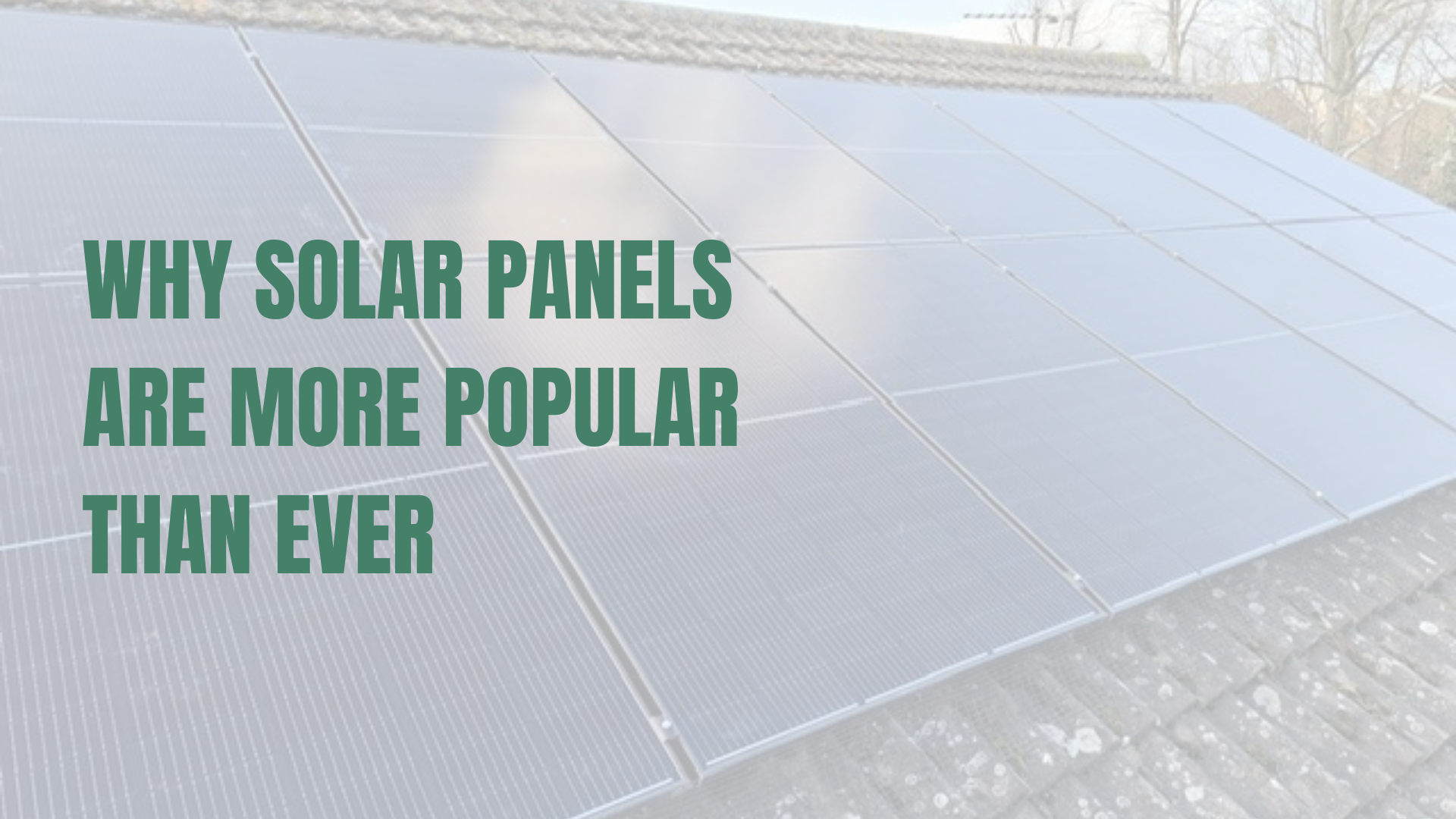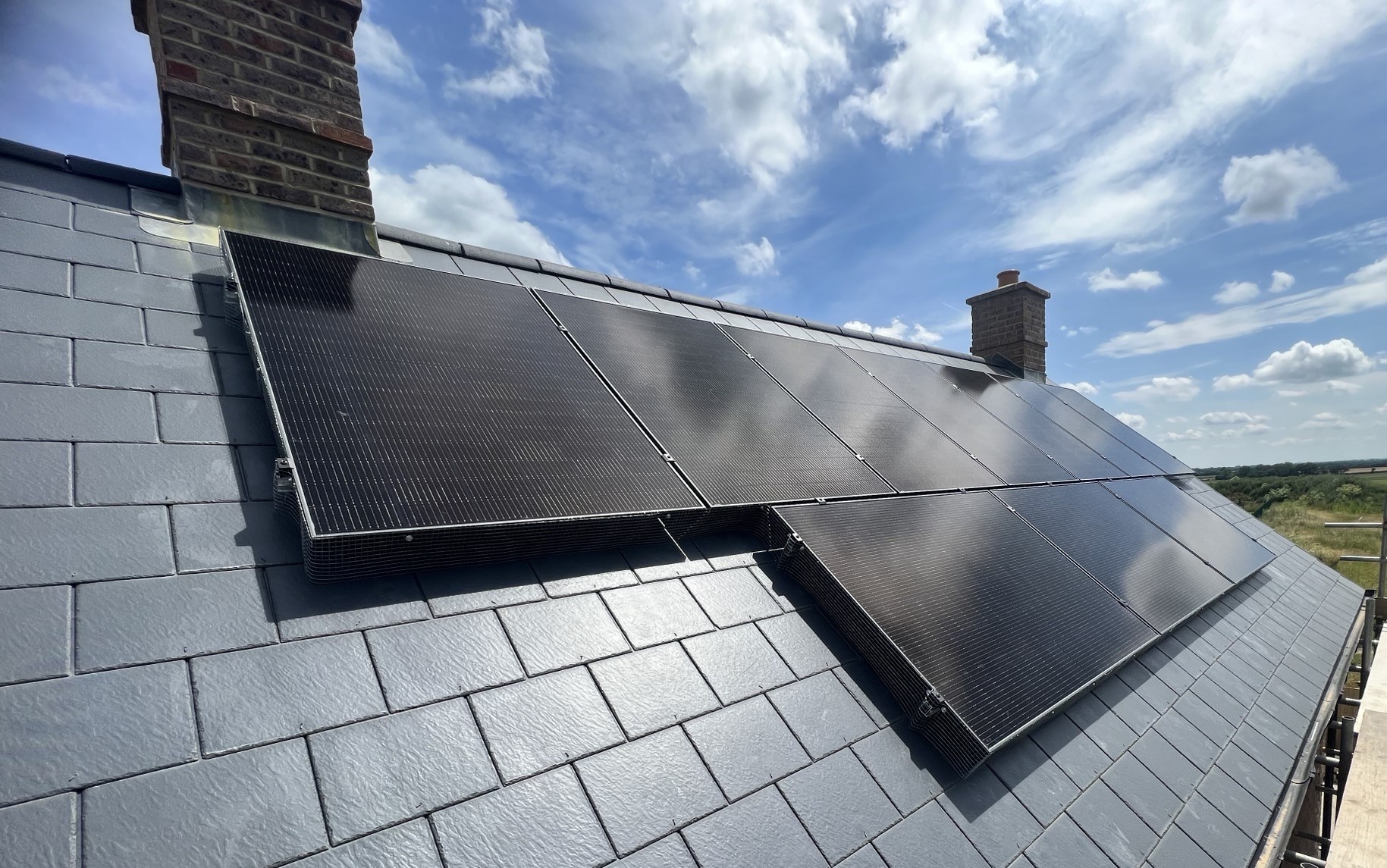Solar panels have never been more accessible, thanks to falling installation costs, government grants, and schemes like the Smart Export Guarantee (SEG), households across the UK are saving money and reducing their carbon footprint. In fact, over 1.5 million UK homes now use solar panels, and that figure just keeps increasing.
Before you make the switch, it’s important to understand both the benefits and the limitations of solar energy. In this guide we’ll break down the key pros and cons of solar panels, so you can make an informed decision.
Top 10 Benefits of Solar Panels
Reduce Your Energy Bills
A standard 3.5kW solar panel system costs between £5,500 and £7,000, but it can save you £450-£600 per year on electricity. Adding a solar battery allows you to store surplus electricity for use in the evenings, maximising savings and giving you round the clock free electricity to use.
Earn Money from Surplus Electricity
Thanks to the Smart Export Guarantee (SEG), UK homeowners can sell excess electricity back to the National Grid. If your solar panels are generating more electricity than you can use, exporting to the grid can provide an additional source of income, paying back your investment even sooner.
Shrink Your Carbon Footprint
A typical solar PV system saves around 1 tonne of CO₂ per year, equivalent to driving 3,600 miles in a petrol car or 31 trees planted.
Silent, Hassle-Free Energy
Unlike noisy generators, solar panels operate completely silently, producing renewable energy without disturbing your household or neighbours.
Reduce Dependence on the Grid
Solar panels, especially when paired with a solar battery, reduce reliance on expensive grid electricity. Take back control of your power with energy independence.
Scalable and Flexible
Solar systems are modular, so you can add extra panels as your energy needs grow, provided you have the space. Many solar batteries, like the Voltsmile V10 can be stacked together or linked to increase storage capacity.
Low Maintenance and Long Lasting
Solar panels require minimal maintenance. Rainfall will keep your panels clean most of the time, with a professional or more thorough clean every few years to remove any stubborn dirt or debris. Most solar panels come with a 25 year warranty and last a minimum of 30 years, with many lasting 40 years or more before a noticeable drop in generation happens.
Grants and Financial Support
Several UK schemes help reduce the upfront cost of solar panels:
- Smart Export Guarantee – get paid for surplus electricity exported to the grid
- ECO4 Scheme – covers up to 100% cost for low-income, energy inefficient homes
Multiple Solar Options
Choose between solar panels for electricity or solar thermal systems for heating hot water. Solar panels are generally more cost effective and widely used now, and with additional smart technology such as a solar divertor can be used to heat hot water too.
Increase Property Value
It is now evident that solar panels make your home more energy efficient and attractive to buyers, resulting in a resale value of up to 14% more than a similar property without solar.
The Drawbacks of Solar Panels
High Upfront Costs
Although prices have dropped – almost 80% over the last decade – installing solar can be expensive. Grants and financing options can make solar more affordable.
Weather Dependent Performance
Solar panels generate more energy in sunny months than in winter. While lower, solar panels do still generate a significant amount of electricity on a cloudy or cold day.
Roof Suitability Matters
South-facing roofs at 30-45° angles work best. East and west facing roofs can also work. Shading and obstructions may reduce efficiency.
Space Requirements
Solar panels are large and take up a lot of space, if your roof is small, consider high efficiency panels to produce more energy with fewer panels.
Contain Hazardous Materials
Solar panels can contain some toxic materials, it’s essential to recycle them responsibly at the end of their lifespan.
Moving Panels is Costly
Solar panels are meant to stay in place once installed. Moving them is expensive and it is often more economical to leave them on your old property and install new on your new property.
Long Return on Investment Period
The average break even for solar panels is 6-10 years, if you install a solar battery that can increase to up to 15 years. After that, the energy savings are essentially profit, making them a long term investment.
Should You Install Solar Panels?
Yes, solar panels remain one of the best ways to cut energy bills, increase your home’s value and reduce your carbon footprint. While upfront costs and roof suitability are considerations, the long term benefits far outweigh the drawbacks.
Even on cloudy days, solar panels continue to generate free electricity – a clear win for both your wallet and the planet.
Solar energy is more affordable, accessible and efficient than ever before. Despite a few limitations, the pros of solar panels far outweigh the cons, providing long term savings, sustainability and peace of mind.
Ready to Join the Solar Revolution?
Contact SolarTherm UK for a free no obligation quote and design, tailored to your property, usage and future energy needs. No hard sell, just honest, expert advice. At SolarTherm UK, we have over 15 years experience in the solar industry, helping thousands of homeowners across Essex, Kent, London and the wider South East save money and take back control of their energy.
Your home. Your energy. Your future.





